Decriminalizing Sex Work: Ending Stigma, Protect Health
with APNSW

Client
APNSW
Relationship
Since 2021
Services
Visual Design, Illustration, Print and
publication Design
What can humanising sex workers look like?
Images can challenge stereotypes by humanizing sex workers, showing their diverse backgrounds, and depicting their everyday lives, empowerment, and advocacy.
Making of APNSW Strategic plan
The Asia Pacific Network of Sex Workers (APNSW) is a 100% sex workers-led regional network that works with and for, the sex workers, groups, networks and organisations in the Asia and the Pacific region. They aim to represent, empower and support the sex worker community as a social movement in the Asia Pacific region to bring about the full decriminalisation of sex work and promote respect and protect the fundamental rights of all sex workers.
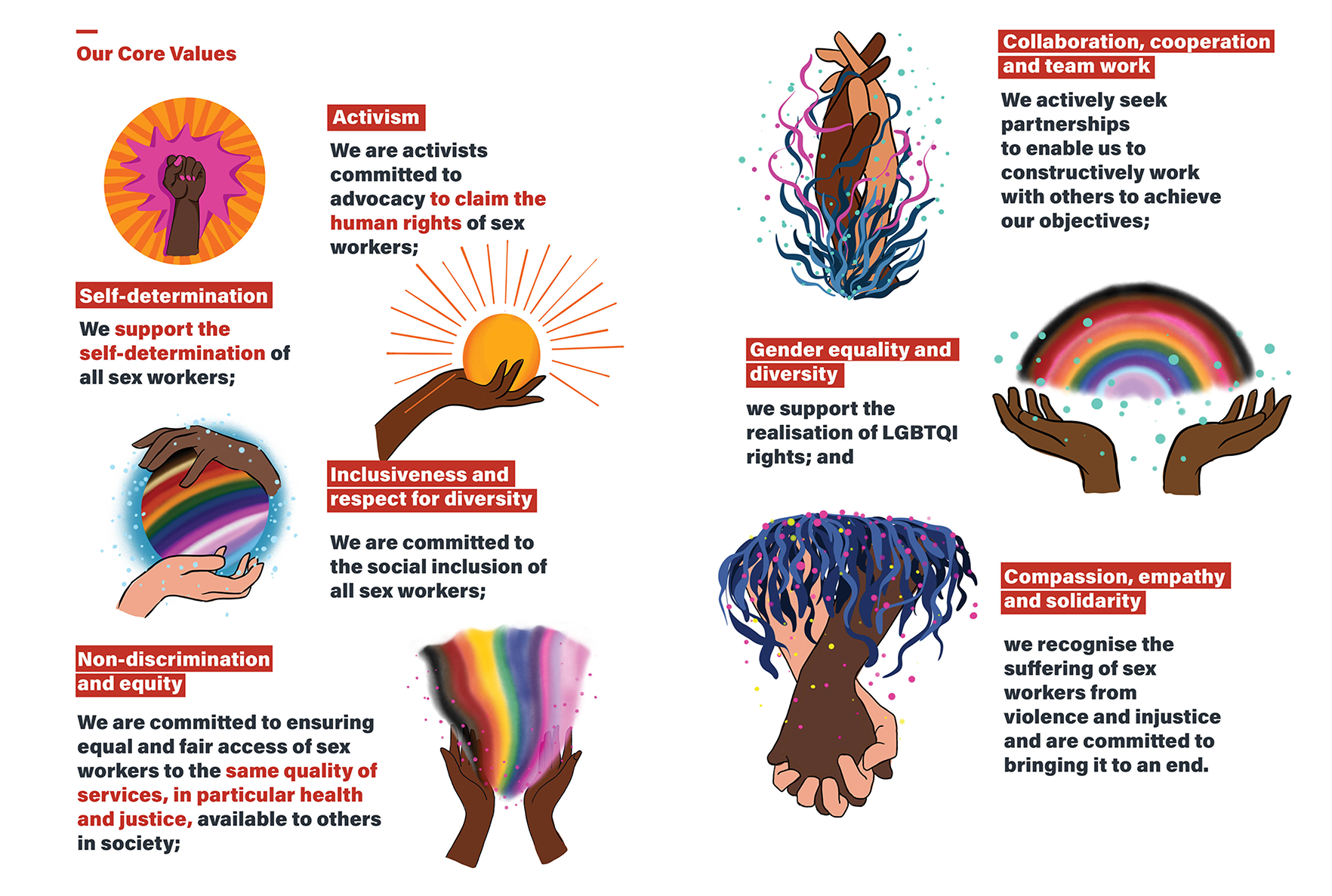
Criminalization's Toll on Sex Workers in Asia & Pacific
Stigma and discrimination are the two main challenges sex workers face across the globe—specifically in Asia and the Pacific. Criminalisation of sex work deeply affects all sex workers in Asia and the Pacific region except for New Zealand and New South Wales.
Persevering the dignity and power of the people we illustrate is one of our primary goals. In this image, for the Asia Pacific Network of Sex Workers (APNSW), our approach was to humanise sex workers. All our design decisions were focused on bringing a realistic representation of their lives while acknowledging their strengths, skills, and voices. The images were rooted in self-acceptance, mindfulness, fierce love towards their dependents/families, their resilience and their joy.
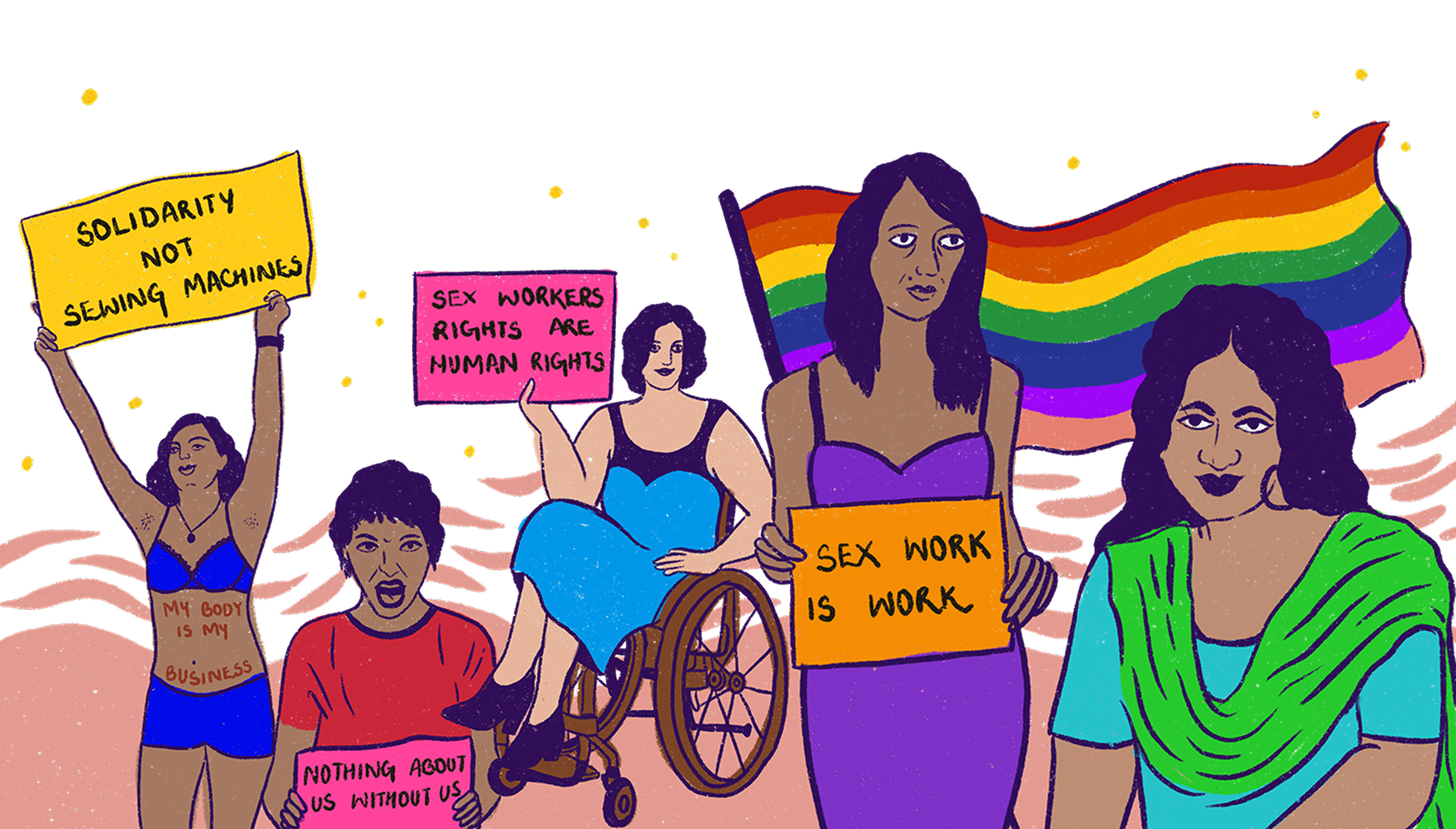
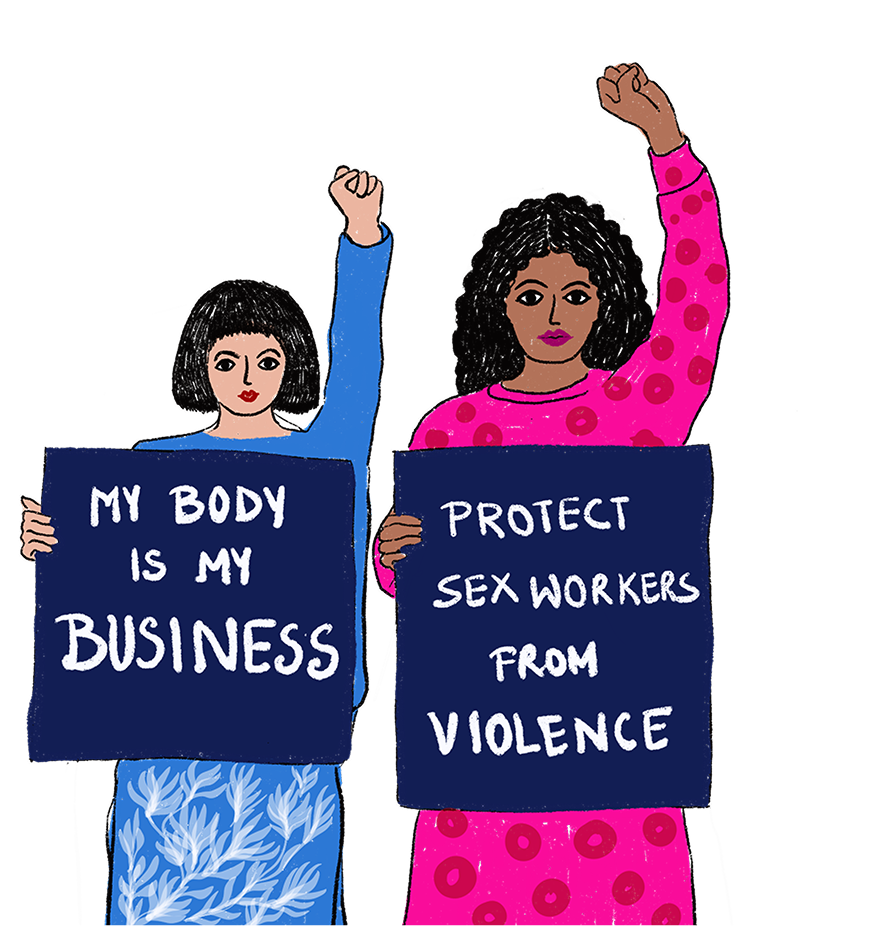
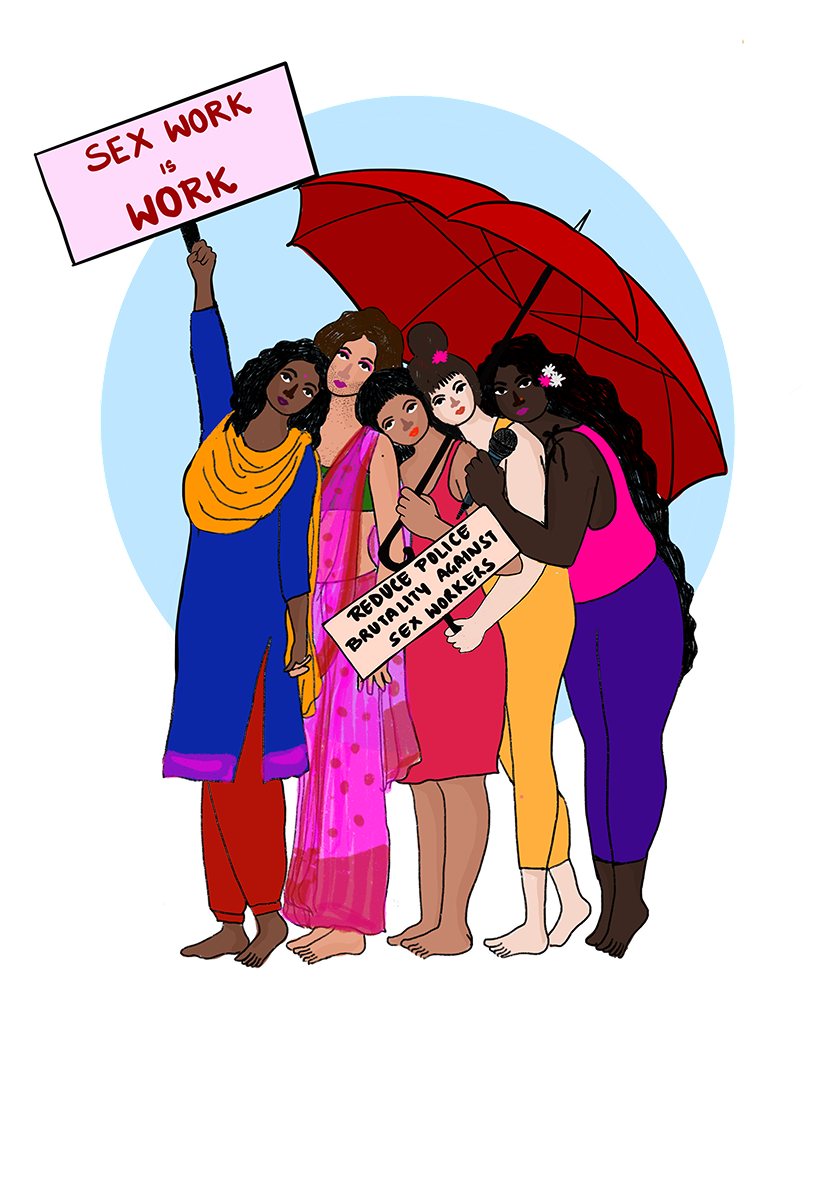
Rewriting the narrative around sex work is essential to restoring dignity and challenging the stigma faced by those in the industry. We are a firm believer in the power and politics of images to reclaim the representation of people.
Current portrayals often reinforce harmful stereotypes, perpetuating a narrow view that dehumanizes sex workers and ignores their autonomy, struggles, and rights. By fostering more nuanced, empathetic, and diverse depictions, we can shift public perceptions, advocate for their rights, and promote a more just and compassionate understanding of sex work as legitimate work, deserving of respect and protection.
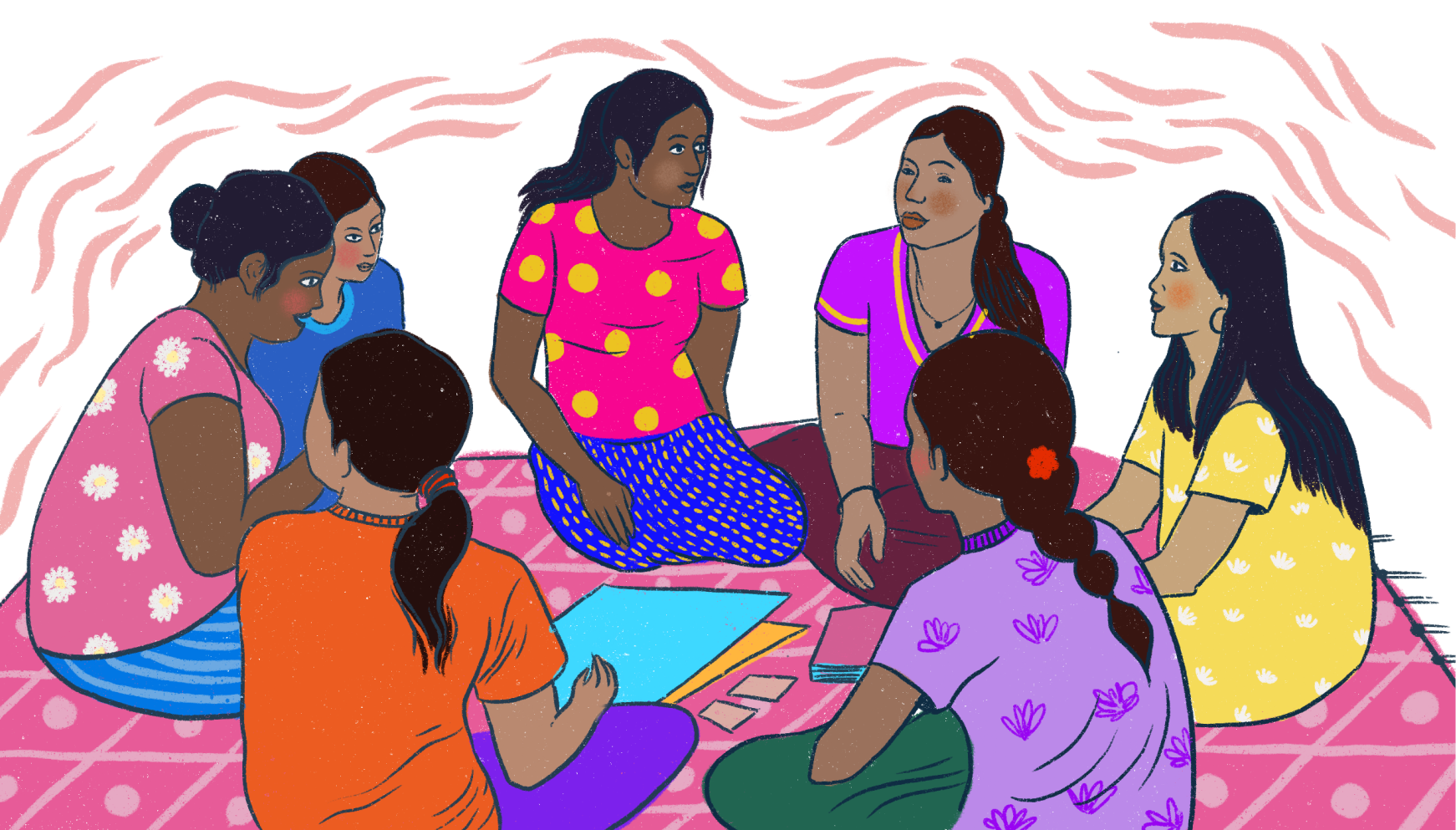
We worked with them to design a publication that states ten reasons why decriminalization of sex work is the best policy for promoting the health and human rights of sex workers, their families, and communities.
Our approach was to recognise sex work as work—to humanise sex workers. We choose images that bring a realistic representation of their interesting lives. Every sex worker needs to attain the right to protection and participation, built on the foundation of self-determination. The illustrations were rooted in self-acceptance, self-care, mindfulness, fierceness and love towards their dependents/ families, their stories, their resilience and their joy.

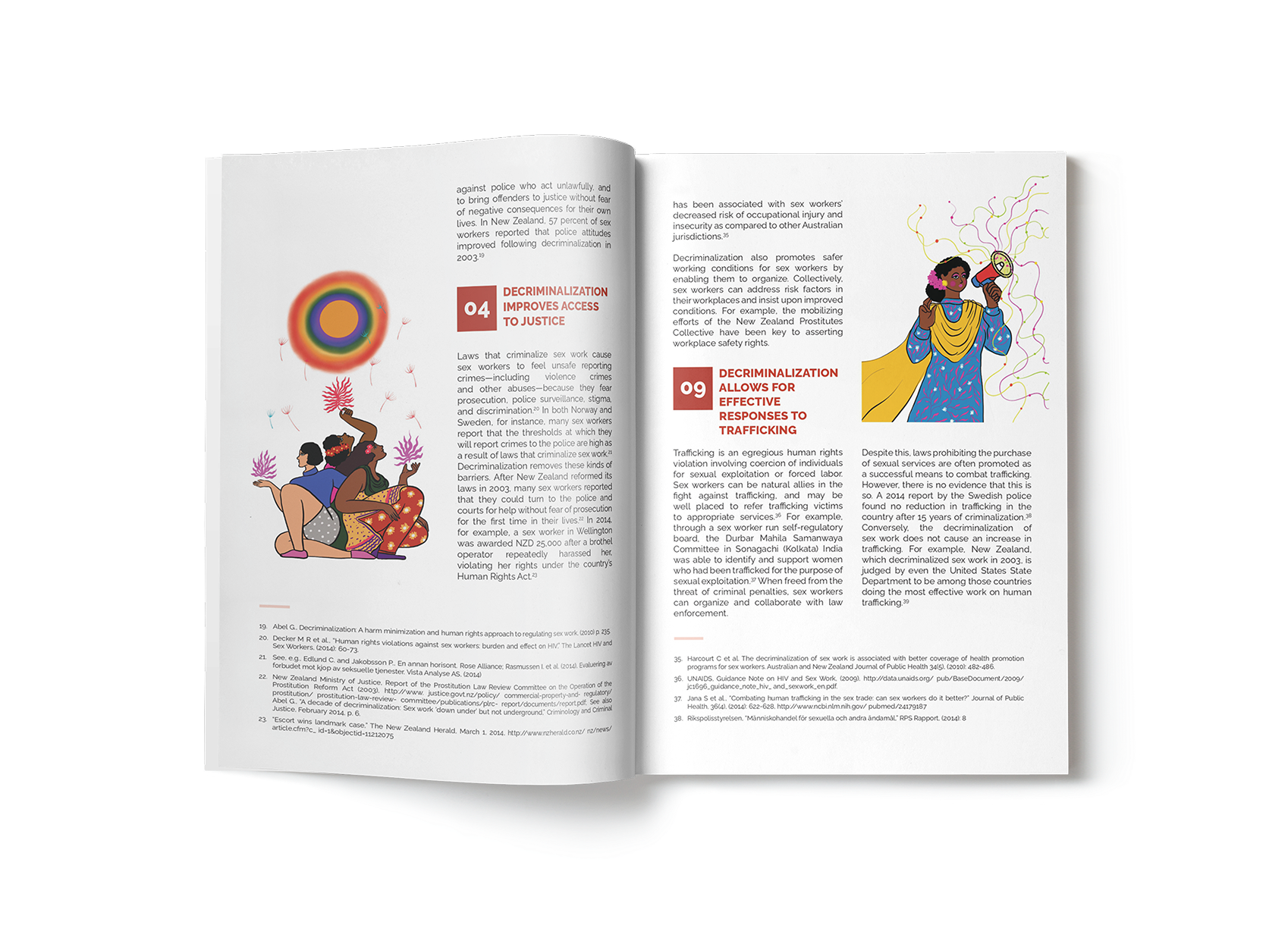



Decriminalizing sex work is inseparable from recognizing it as legitimate labor, where sex workers deserve the same rights and protections as any other profession. Establishing workplace health and safety standards is critical to safeguarding their well-being. Equally important is creating media representations that portray sex workers as workers, deserving of rights and labor protections. These visual narratives are vital in reshaping public perceptions, humanizing sex workers, and advancing their fight for fair treatment under labor laws.